
Book lists, Letter from the Founder
Welcome to the 105th issue of CEE News!
.
 At the beginning of each summer, I like to share curated lists of new books that provide diverse perspectives to help our readers grow both personally and professionally. This year, I’m switching things up. With close to 4 million new books being published each year, I’m prioritizing quality over quantity, and sharing six engrossing books about the dynamics between power and leadership that I’ve read in the past year. I hope you’ll find this list helpful if you’re looking for something to read this summer that will bring you to think more deeply about the way power has shaped modern American history, and what can be learned to build a better future.
At the beginning of each summer, I like to share curated lists of new books that provide diverse perspectives to help our readers grow both personally and professionally. This year, I’m switching things up. With close to 4 million new books being published each year, I’m prioritizing quality over quantity, and sharing six engrossing books about the dynamics between power and leadership that I’ve read in the past year. I hope you’ll find this list helpful if you’re looking for something to read this summer that will bring you to think more deeply about the way power has shaped modern American history, and what can be learned to build a better future.
In 2022, I watched the documentary, Turn Every Page, by filmmaker Lizie Gottlieb about the 50-year relationship between author Robert Caro and his editor Robert Gottlieb, the filmmaker’s father. In the 1970s, Caro started writing The Power Broker (Book No. 1, below). In the documentary, the author/editor pair are knee deep in the fifth and final volume of The Years of Lyndon Johnson. Gottlieb died last June at the age of 92, leaving the then 88-year-old Caro to finish their monumental collaboration.
“What I’m trying to do,” said Caro, “is to show not only how power works but the effect of power on the powerless: How political power affects our lives, every single day, in ways we never think about.”
As a student of the impact of power on leadership and culture, I started reading Caro’s, The Power Broker and went on to devour the four completed volumes of his magnificent works on Lyndon Johnson. If you’re also a student of the dynamics between power, leadership, and culture, these six books below will easily last you all summer and will resonate with you for a lifetime.
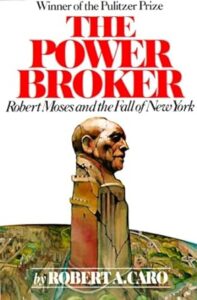 1. The Power Broker: Robert Moses and the Fall of New York, by Robert Caro (July 12, 1975)
1. The Power Broker: Robert Moses and the Fall of New York, by Robert Caro (July 12, 1975)
One of the Modern Library’s hundred greatest books of the 20th centory, Robert Caro’s monumental book makes public what few outsiders knew: that Robert Moses was the single most powerful man of his lifetime in the City and State of New York. In telling the Moses story, Caro both opens up to an unprecedented degree the way in which politics really happens – the way things really get done in America’s City Halls and Statehouses – and brings to light a bonanza of vital information about such national figures as Franklin D. Roosevelt, Fiorello La Guardia, and Nelson Rockefeller.
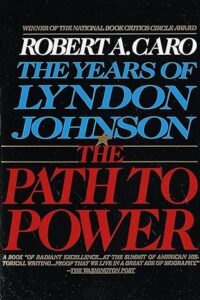 2. The Years of Lyndon Johnson: The Path to Power, by Robert Caro (February 17, 1990)
2. The Years of Lyndon Johnson: The Path to Power, by Robert Caro (February 17, 1990)
The Path to Power, Book One of The Years of Lyndon Johnson, reveals in extraordinary detail the genesis of the almost superhuman drive, energy, and urge to power that set LBJ apart. Chronicling the startling early emergence of Johnson’s political genius, it follows him from his Texas Hill Country boyhood through the years of the Depression, to the triumph of his congressional debut in New Deal Washington, to his heartbreaking defeat in his first race for the Senate, and his attainment, by any means necessary, of the national power for which he hungered.
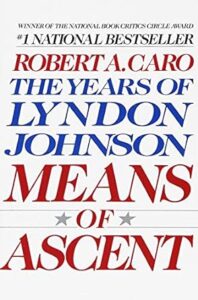 3. The Years of Lyndon Johnson: Means of Ascent, by Robert Caro (March 7, 1990)
3. The Years of Lyndon Johnson: Means of Ascent, by Robert Caro (March 7, 1990)
Here, Johnson’s almost mythic personality—part genius, part behemoth, at once hotly emotional and icily calculating—is seen at its most nakedly ambitious. This multifaceted book carries the President-to-be from the aftermath of his devastating defeat in his 1941 campaign for the Senate-the despair it engendered in him, and the grueling test of his spirit that followed as political doors slammed shut-through his service in World War II (and his artful embellishment of his record) to the foundation of his fortune (and the actual facts behind the myth he created about it).
 4. The Years of Lyndon Johnson: Master of the Senate, by Robert Caro (April 23, 2002)
4. The Years of Lyndon Johnson: Master of the Senate, by Robert Caro (April 23, 2002)
In this winner of the Pulitzer Prize and National Book Award, Caro takes Johnson’s story through one of its most remarkable periods: his twelve years, from 1949 through 1960, in the U.S. Senate. Once the most august and revered body in politics, by the time Johnson arrived, Caro shows how Johnson’s brilliance, charm, and ruthlessness enabled him to become the youngest and most powerful Majority Leader in history and how he used his incomparable legislative genius – cajoling and threatening both Northen liberals and Southern conservatives – to pass the first Civil Rights legislation since Reconstruction. Brilliantly weaving rich detail into a gripping narrative, Caro gives us both a galvanizing portrait of Johnson himself and a definitive and revelatory study of the workings of legislative power.
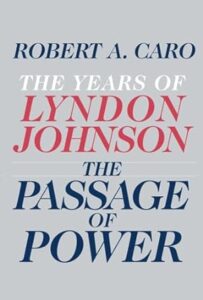 5. The Lyndon Johnson Years: The Passage of Power, by Robert Caro (May 1, 2012)
5. The Lyndon Johnson Years: The Passage of Power, by Robert Caro (May 1, 2012)
The Passage of Power follows Johnson through both the most frustrating and triumphant periods of his career—1958 to 1964. It is a time that would see him trade the extraordinary power he had created for himself as Senate Majority Leader for what became the wretched powerlessness of a Vice President in an administration that disdained and distrusted him. Yet it was, as well, the time in which the presidency, the goal he had always pursued, would be thrust upon him in the moment it took an assassin’s bullet to reach its mark.
If you’ve already read, or don’t have the appetite for the 4,888 pages by Robert Caro, I highly recommend this Pulitzer Prize winner and my favorite book of 2024 so far . . .
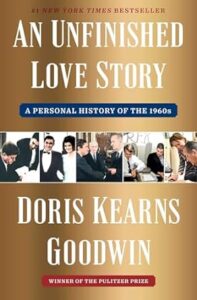 6. An Unfinished Love Story: A Personal History of the 1960s, by Doris Kearns Goodwin (April 16, 2024)
6. An Unfinished Love Story: A Personal History of the 1960s, by Doris Kearns Goodwin (April 16, 2024)
Doris Kearns Goodwin, one of America’s most beloved historians, artfully weaves together biography, memoir, and history. During the last years of her husband, Richard (Dick) Goodwin’s, life, the couple unpacked over three hundred boxes that Dick had squirreled away during his 50-year career. His unique speech-writing voice propelled him to the front row of 1960s America, Forest Gumpian-style, penning some of the most memorable political speeches, including John F. Kennedy’s Latin American speeches, Lyndon Johnson’s most famous civil rights and Great Society speeches, Robert Kennedy’s famous “ripple of hope” speech in South Africa in 1966, and, later, Al Gore’s presidential concession speech in 2000. An Unfinished Love Story takes you along on the emotional journey that gave the couple the opportunity to make fresh assessments of the central figures of our time and revive the hope that the youth of today will carry forward this unfinished love story with America.
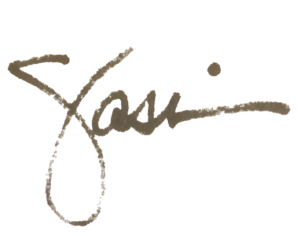
Sheri Nasim | President & CEO


Book lists, Leadership
Summer is the perfect time to immerse yourself in captivating reads that enlighten, educate, and inspire. We’ve curated a list of fresh titles that will ignite your imagination and give you diverse perspectives to grow yourself personally and professionally.
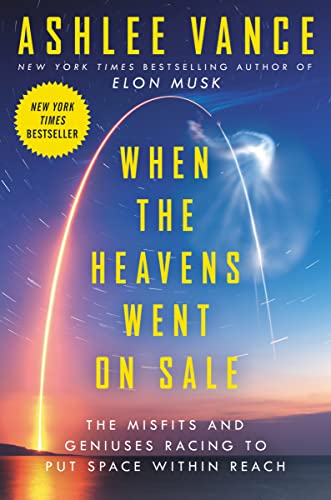 1. When the Heavens Went on Sale: The Misfits and Geniuses Racing to Put Space Within Reach by Ashlee Vance
1. When the Heavens Went on Sale: The Misfits and Geniuses Racing to Put Space Within Reach by Ashlee Vance
When the Heavens Went on Sale tells the remarkable, unfolding story of this frenzied intergalactic land grab. Through his trademark immersive reporting, Ashlee Vance follows four pioneering companies—Astra, Firefly, Planet Labs, and Rocket Lab—as they build new space systems and attempt to launch rockets and satellites into orbit by the thousands. While the public fixated on the space tourism being driven by the likes of Jeff Bezos and Richard Branson, these new companies arrived with a different set of goals: to make rocket and satellite launches fast and cheap, thereby opening Earth’s lower orbit for business—and setting it up as the next playing field for humankind’s technological evolution, where we can connect, analyze, and monitor everything on Earth.
 2. Lessons From the Edge: A Memoir by Marie Yovanovitch
2. Lessons From the Edge: A Memoir by Marie Yovanovitch
By the time she became U.S. Ambassador to Ukraine, Marie Yovanovitch had seen her share of corruption, instability, and tragedy in developing countries. But it came as a shock when, in early 2019, she was recalled from her post after a smear campaign by President Trump’s personal attorney and his associates—men operating outside of normal governmental channels, and apparently motivated by personal gain. Her courageous participation in the subsequent impeachment inquiry earned Yovanovitch the nation’s respect, and her dignified response to the president’s attacks won our hearts. She has reclaimed her own narrative, first with her lauded congressional testimony, and now with this memoir.
 3. And There Was Light: Abraham Lincoln and the American Struggle by Jon Meacham
3. And There Was Light: Abraham Lincoln and the American Struggle by Jon Meacham
Pulitzer Prize–winning biographer Jon Meacham chronicles the life of Abraham Lincoln, charting how—and why—he confronted secession, threats to democracy, and the tragedy of slavery to expand the possibilities of America.
This book tells the story of Lincoln from his birth on the Kentucky frontier in 1809 to his leadership during the Civil War to his tragic assassination in 1865: his rise, his self-education, his loves, his bouts of depression, his political failures, his deepening faith, and his persistent conviction that slavery must end. In a nation shaped by the courage of the enslaved of the era and by the brave witness of Black Americans, Lincoln’s story illustrates the ways and means of politics in a democracy, the roots and durability of racism, and the capacity of conscience to shape events.
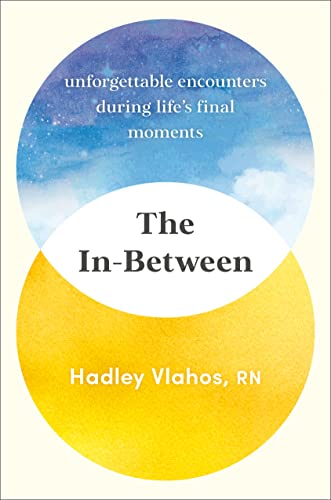 4. The In-Between: Unforgettable Encounters During Life’s Final Moments by Hadley Vlahos
4. The In-Between: Unforgettable Encounters During Life’s Final Moments by Hadley Vlahos
Talking about death and dying is considered taboo in polite company, and even in the medical field. Our ideas about dying are confusing at best: Will our memories flash before our eyes? Regrets consume our thoughts? Does a bright light appear at the end of a tunnel? For most people, it will be a slower process, one eased with preparedness, good humor, and a bit of faith. At the forefront of changing attitudes around palliative care is hospice nurse Hadley Vlahos, who shows that end-of-life care can teach us just as much about how to live as it does about how we die.
Written with profound insight, humility, and respect, The In-Between is a heartrending memoir that shows how caring for others can transform a life while also offering wisdom and comfort for those dealing with loss and providing inspiration for how to live now.
 5. The Book of Charlie: Wisdom from The Remarkable American Life of a 109-Year Old Man by David Von Drehle
5. The Book of Charlie: Wisdom from The Remarkable American Life of a 109-Year Old Man by David Von Drehle
When a veteran Washington journalist moved to Kansas, he met a new neighbor who was more than a century old. Little did he know that he was beginning a long friendship—and a profound lesson in the meaning of life. Charlie White was no ordinary neighbor. Born before radio, Charlie lived long enough to use a smartphone. When a shocking tragedy interrupted his idyllic boyhood, Charlie mastered survival strategies that reflect thousands of years of human wisdom. Thus armored, Charlie’s sense of adventure carried him on an epic journey across the continent, and later found him swinging across bandstands of the Jazz Age, racing aboard ambulances through Depression-era gangster wars, improvising techniques for early open-heart surgery, and cruising the Amazon as a guest of Peru’s president.
David Von Drehle came to understand that Charlie’s resilience and willingness to grow made this remarkable neighbor a master in the art of thriving through times of dramatic change. As a gift to his children, he set out to tell Charlie’s secrets. The Book of Charlie is a gospel of grit—the inspiring story of one man’s journey through a century of upheaval. The history that unfolds through Charlie’s story reminds you that the United States has always been a divided nation, a questing nation, an inventive nation—a nation of Charlies in the rollercoaster pursuit of a good and meaningful life.
 6. Surf When You Can: Lessons in Life, Loyalty, and Leadership From a Maverick Navy Captain by Captain Brett Crozier
6. Surf When You Can: Lessons in Life, Loyalty, and Leadership From a Maverick Navy Captain by Captain Brett Crozier
Amid one of the darkest times in American history, it was a moment that captured the attention of the nation. Brett Crozier, captain of the most powerful and prestigious aircraft carrier in the United States Navy, walked off his ship for the last time while thousands of his sailors saluted and chanted his name in admiration.
This remarkable moment occurred after Crozier made the decision to try to protect his sailors by pleading with his superiors for help when COVID-19 swept through the vessel. Two days later, he was relieved of command.
Now, Crozier reflects on his life, career, and commitment to doing the right thing in a book that celebrates the power of kindness, the importance of teamwork, and the value of standing up for what you believe in. Through a series of captivating stories set all around the world, Crozier takes us along on the grand adventures of his extraordinary career and introduces the incredible people he met along the way.
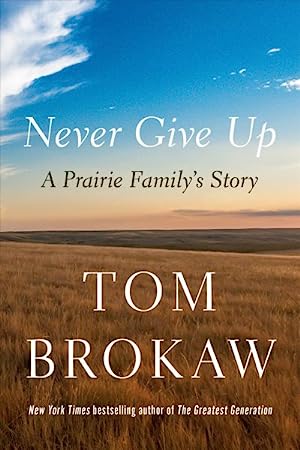 7. Never Give Up: A Prairie Family’s Story, by Tom Brokaw
7. Never Give Up: A Prairie Family’s Story, by Tom Brokaw
Never Give Up: A Prairie Family’s Story by Tom Brokaw is a poignant account of the author’s parents and their journey through the challenges of life on the prairie during the early 20th century. Tom’s father, Red, dropped out of school at a young age to work in the family hotel, but his hard work and determination led him to develop a remarkable talent for machines. Tom’s mother, Jean, hailed from a family that faced immense adversity during the Great Depression. Despite their financial struggles, Red’s unwavering philosophy of “Never give up” guided them through tough times. Eventually, Red’s career breakthrough came after World War II, when he joined the Army Corps of Engineers and contributed to the construction of significant dams. The book draws inspiration from Red’s recorded memories of his early life, showcasing the resilience and respect for others that shaped this American family.
Red’s “never give up” philosophy serves as a guiding principle to remain steadfast in the face of challenges and setbacks. This inspiring story encourages leaders to draw strength from the past, honor the fortitude of previous generations, and apply these timeless values to overcome present-day challenges.
Question: What books are you looking forward to reading this summer?
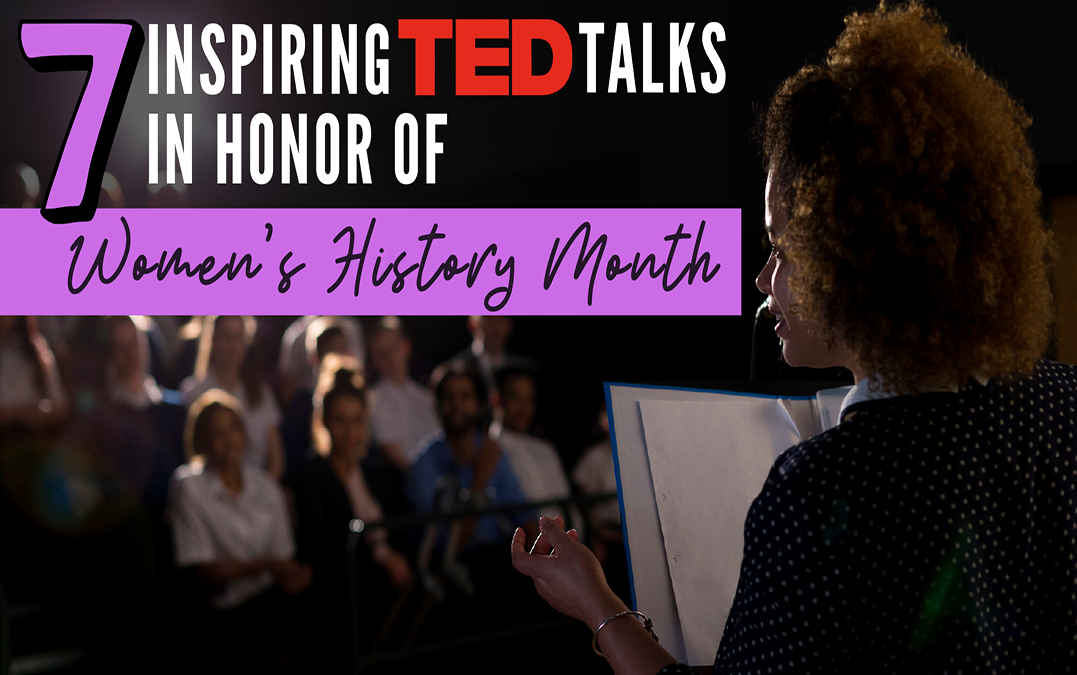
Book lists, Diversity, Equity, Inclusion
Since 1987, March has been designated as Women’s History Month. This year, we are sharing some of the top TED Talks given by women leaders from a gamut of backgrounds. These women use humor, vulnerability, and wisdom to claim permission to step into power, validate women’s experiences, and change the world with their stories.
Here’s a look at seven inspiring TED Talks from remarkable women around the globe.
1. Africa is a Sleeping Giant – I’m Trying to Wake it UpbyAdeola Fayehun
About the speaker: Adeola Fayehun is a Nigerian journalist and political satirist who focuses on geopolitical, social and economic issues affecting Africans. She hosts a satirical news show on YouTube called Keeping It Real with Adeola, produced and published on the “Adeola Fayehun” YouTube channel. Previously, she worked for SaharaTV.
What her talk is about: Follow along as she roasts corrupt African officials and shows why the continent already has all it needs to take its rightful place on the world stage — if only leaders would start taking responsibility.
2. How to Fix a Broken School? Lead fearlessly. Love hard.by Linda Cliatt-Wayman
About the speaker: Linda Cliatt-Wayman is a renowned education leader with an unwavering belief in the potential of all children. Cliatt-Wayman grew up in poverty in North Philadelphia, where she experienced firsthand the injustice perpetuated against poor students in their education. She vowed to dedicate her life to helping as many children escape poverty through education as she could.
What her talk is about: On her first day as principal at a failing high school in North Philadelphia, Cliatt-Wayman was determined to lay down the law. But she soon realized the job was more complex than she thought. With palpable passion, she shares the three principles that helped her turn around three schools labeled “low-performing and persistently dangerous.” Her fearless determination to lead — and to love the students, no matter what — is a model for leaders in all fields.
3. Three Ideas. Three Contradictions. Or Not?by Hannah Gadsby
About the speaker: Australian comedian Hannah Gadsby skewers the straight world’s dismissal and outright hostility toward the LGBTQ community in her stand-up sets, stage performances and television shows.
What her talk is about: Her groundbreaking Netflix special “Nanette” broke comedy. In a talk about truth and purpose, she shares three ideas and three contradictions. Or not.
4. The Legacy of Matriarchs in the Yukon First Nationsby Kluane Adamek
About the speaker: Kluane Adamek, she/her/hers (traditional name is “Aagé”), has served as the Assembly of First Nations Yukon Regional Chief since January 2018. She is a proud northerner and citizen of Kluane First Nation. Regional Chief Adamek belongs to the Dakl’aweidi (Killerwhale) Clan and comes from a diverse background with Tlingit, Southern Tutchone, German and Irish origins.
What her talk is about: In the Yukon First Nations, women lead. Generations of matriarchs have guided and directed the community by forging trade agreements, creating marriage alliances and ensuring business for all. Yukon Regional Chief Kluane Adamek urges others to follow in the legacy of her people by putting more women at the table and encouraging them to seek spaces where their perspectives can create the biggest impact for a better tomorrow.
5. The Lady Stripped Bareby Tracey Spicer
About the speaker: Tracey Spicer is a multiple award winning Australian author, journalist and broadcaster. In 2019 she was named the NSW Premier’s Woman of the Year, accepted the Sydney Peace Prize alongside Tarana Burke for the Me Too movement, and won the national award for Excellence in Women’s Leadership through Women & Leadership Australia.
What her talk is about: Tracey strips away her pulled-together look on stage as she strips back her daily routine and challenges us all to use our time more productively.
6. How I Stopped the Taliban from Shutting Down My Schoolby Sakena Yacoobi
About the speaker: Dr. Sakena Yacoobi is the CEO of the Afghan Institute of Learning (AIL), which she founded in 1995 in response to the lack of education and health care that the Afghan people were facing after decades of war and strife. Since its founding, AIL has either directly or indirectly impacted the lives of millions of Afghans.
What her talk is about: When the Taliban closed all the girls’ schools in Afghanistan, Sakena Yacoobi set up new schools, in secret, educating thousands of women and men. In this fierce, funny talk, she tells the jaw-dropping story of two times when she was threatened to stop teaching — and shares her vision for rebuilding her beloved country.
7. It’s Time for Women to Run for Officeby Halla Tómasdóttir
About the speaker: Tómasdóttir co-founded Audur Capital, one of few financial companies in Iceland to survive the financial meltdown in 2007. In 2016, responding to popular demand, she ran for president of Iceland. She was an unlikely candidate, with polls predicting one percent of the vote only 45 days before the election. A few weeks later, against all odds, she came in second, supported by 28% of Icelanders.
What her talk is about: With warmth and wit, Halla Tómasdóttir shares how she overcame media bias, changed the tone of the political debate and surprised her entire nation when she ran for president of Iceland — inspiring the next generation of leaders along the way. “What we see, we can be,” she says. “It matters that women run.”
Question: Which of these remarkable women from around the world inspire you to be a better leader from where you are?
Driven by the premise that excellence is the result of aligning people, purpose and performance, Center for Executive Excellence facilitates training in leading self, leading teams and leading organizations. To learn more, subscribe to receive CEE News!
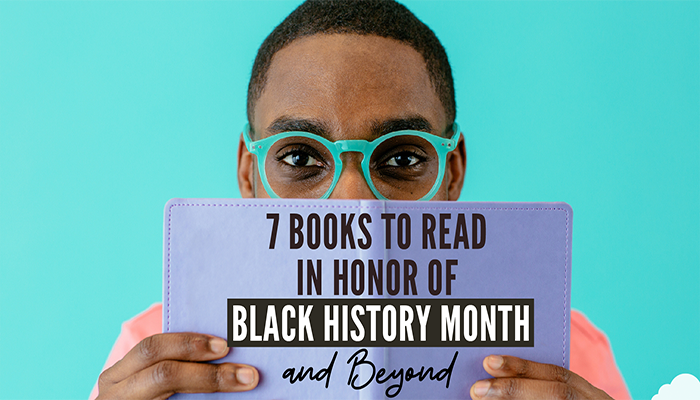
Book lists, Diversity, Equity, Inclusion
Every February, the U.S. honors the contributions and sacrifices of Black Americans who have helped shape the nation. Black History Month celebrates the rich cultural heritage, triumphs and adversities that are an indelible part of our country’s history. If you’re looking for a way to educate yourself and expand your knowledge about the accomplishments and contributions of Black people in American history, as well as reflect on the inequalities and injustices that have been done against them, we’ve rounded up 7 recent books by some of the most brilliant Black authors and historical scholars to read this month and beyond.
1. Speaking of Race: Why Everybody Needs to Talk About Racism―and How to Do It by Celeste Headlee
A self-described “light-skinned Black Jew,” Celeste Headlee has been forced to speak about race—including having to defend or define her own—since childhood. In her career as a journalist, she’s made it a priority to talk about race proactively. She’s discovered, however, that those exchanges have rarely been productive. While many people say they want to talk abo ut race, the reality is, they want to talk about race with people who agree with them. The subject makes us uncomfortable; it’s often not considered polite or appropriate. To avoid these painful discussions, we stay in our bubbles, reinforcing our own sense of righteousness as well as our division.
ut race, the reality is, they want to talk about race with people who agree with them. The subject makes us uncomfortable; it’s often not considered polite or appropriate. To avoid these painful discussions, we stay in our bubbles, reinforcing our own sense of righteousness as well as our division.
Yet we gain nothing by not engaging with those we disagree with; empathy does not develop in a vacuum and racism won’t just fade away. If we are to effect meaningful change as a society, Headlee argues, we have to be able to talk about what that change looks like without fear of losing friends and jobs, or being ostracized. In Speaking of Race, Headlee draws from her experiences as a journalist, and the latest research on bias, communication, and neuroscience to provide practical advice and insight for talking about race that will facilitate better conversations that can actually bring us closer together.
This is the book for people who have tried to debate and educate and argue and got nowhere; it is the book for those who have stopped talking to a neighbor or dread Thanksgiving dinner. It is an essential and timely book for all of us.
 2. Born in Blackness: the Traits, Foibles, and Genius of Breakthrough Innovators Who Changed the World by Howard R. French
2. Born in Blackness: the Traits, Foibles, and Genius of Breakthrough Innovators Who Changed the World by Howard R. French
Traditional accounts of the making of the modern world afford a place of primacy to European history. Some credit the fifteenth-century Age of Discovery and the maritime connection it established between West and East; others the accidental unearthing of the “New World.” Still others point to the development of the scientific method, or the spread of Judeo-Christian beliefs; and so on, ad infinitum. The history of Africa, by contrast, has long been relegated to the remote outskirts of our global story. What if, instead, we put Africa and Africans at the very center of our thinking about the origins of modernity?
In a sweeping narrative spanning more than six centuries, Howard W. French does just that, for Born in Blackness vitally reframes the story of medieval and emerging Africa, demonstrating how the economic ascendancy of Europe, the anchoring of democracy in the West, and the fulfillment of so-called Enlightenment ideals all grew out of Europe’s dehumanizing engagement with the “dark” continent. In fact, French reveals, the first impetus for the Age of Discovery was not — as we are so often told, even today — Europe’s yearning for ties with Asia, but rather its centuries-old desire to forge a trade in gold with legendarily rich Black societies sequestered away in the heart of West Africa.
 3. White Space, Black Hood: Opportunity Hoarding and Segregation in the Age of Inequality by Sheryll Cashin
3. White Space, Black Hood: Opportunity Hoarding and Segregation in the Age of Inequality by Sheryll Cashin
The iconic Black hood, like slavery and Jim Crow, is a peculiar American institution animated by the ideology of white supremacy. Politicians and people of all colors propagated “ghetto” myths to justify racist policies that concentrated poverty in the hood and created high-opportunity white spaces. In White Space, Black Hood, Sheryll Cashin traces the history of anti-Black residential caste—boundary maintenance, opportunity hoarding, and stereotype-driven surveillance—and unpacks its current legacy so we can begin the work to dismantle the structures and policies that undermine Black lives.
Deeply researched and sharply written, White Space, Black Hood is a call to action for repairing what white supremacy still breaks.
 4. Uncomfortable Conversations With a Black Man by Emmanuel Acho
4. Uncomfortable Conversations With a Black Man by Emmanuel Acho
“You cannot fix a problem you do not know you have.” So begins Emmanuel Acho in his essential guide to the truths Americans need to know to address the systemic racism that has recently electrified protests in all fifty states. “There is a fix,” Acho says. “But in order to access it, we’re going to have to have some uncomfortable conversations.”
In Uncomfortable Conversations With a Black Man, Acho takes on all the questions, large and small, insensitive and taboo, many white Americans are afraid to ask―yet which all Americans need the answers to, now more than ever. With the same open-hearted generosity that has made his video series a phenomenon, Acho explains the vital core of such fraught concepts as white privilege, cultural appropriation, and “reverse racism.” In his own words, he provides a space of compassion and understanding in a discussion that can lack both. He asks only for the reader’s curiosity―but along the way, he will galvanize all of us to join the antiracist fight.
 5. Care Free Black Girls: A Celebration of Black Women in Popular Culture by Zeba Blay
5. Care Free Black Girls: A Celebration of Black Women in Popular Culture by Zeba Blay
An empowering and celebratory portrait of Black women—from Josephine Baker to Aunt Viv to Cardi B.
In 2013, film and culture critic Zeba Blay was one of the first people to coin the viral term #carefreeblackgirls on Twitter. As she says, it was “a way to carve out a space of celebration and freedom for Black women online.”
In this collection of essays, Carefree Black Girls, Blay expands on this initial idea by delving into the work and lasting achievements of influential Black women in American culture—writers, artists, actresses, dancers, hip-hop stars—whose contributions often come in the face of bigotry, misogyny, and stereotypes. Blay celebrates the strength and fortitude of these Black women, while also examining the many stereotypes and rigid identities that have clung to them. In writing that is both luminous and sharp, expansive and intimate, Blay seeks a path forward to a culture and society in which Black women and their art are appreciated and celebrated.
 6. You Don’t Know Us Negros and Other Essays by Zora Neale Hurston
6. You Don’t Know Us Negros and Other Essays by Zora Neale Hurston
Spanning more than 35 years of work, the first comprehensive collection of essays, criticism, and articles by the legendary author of the Harlem Renaissance, Zora Neale Hurston, showcasing the evolution of her distinctive style as an archivist and author.
You Don’t Know Us Negroes is the quintessential gathering of provocative essays from one of the world’s most celebrated writers, Zora Neale Hurston. Penned during the backdrop of the birth of the Harlem Renaissance, Montgomery bus boycott, desegregation of the military, and school integration, Hurston’s writing articulates the beauty and authenticity of Black life as only she could. Collectively, these essays showcase the roles enslavement and Jim Crow have played in intensifying Black people’s inner lives and culture rather than destroying it. She argues that in the process of surviving, Black people re-interpreted every aspect of American culture—”modif[ying] the language, mode of food preparation, practice of medicine, and most certainly religion.” White supremacy prevents the world from seeing or completely recognizing Black people in their full humanity and Hurston made it her job to lift the veil and reveal the heart and soul of the race.
 7. How to Talk to Your Boss About Race: Speaking Up Without Getting Shut Down by Y-Vonne Hutchinson
7. How to Talk to Your Boss About Race: Speaking Up Without Getting Shut Down by Y-Vonne Hutchinson
Reporting and personal testimonials have exposed racism in every institution in this country. But knowing that racism exists isn’t nearly enough. Social media posts about #BlackLivesMatter are nice, but how do you push leadership towards real anti-racist action?
Diversity and inclusion strategist Y-Vonne Hutchinson helps tech giants, political leaders, and Fortune 500 companies speak more productively about racism and bias and turn talk into action. In this clear and accessible guide, Hutchinson equips employees with a framework to think about race at work, prepares them to have frank and effective conversations with more powerful leaders, helps them center marginalized perspectives, and explains how to leverage power dynamics to get results while navigating backlash and gaslighting.
How to Talk To Your Boss About Race is a crucial handbook to moving beyond fear to push for change. No matter how much formal power you have, you can create antiracist change at work.
Question: What titles would you add to your reading list for Black History Month and beyond?
Driven by the premise that excellence is the result of aligning people, purpose and performance, Center for Executive Excellence facilitates training in leading self, leading teams and leading organizations. To learn more, subscribe to receive CEE News!

Book lists, Leadership
To be an effective leader, you need experience, business acumen, and emotional intelligence. You can build these through years of trial-and-error on the job, or you can accelerate your learning and growth through reading. Reading helps shape your views and learn through others’ experiences. This becomes crucial when your work shapes your organization’s culture, and, ultimately, its performance. This holiday season offers an excellent opportunity to build your leadership library.
Whether you’re interested in learning from history, in building new skills to match 21st century challenges, or get inspired by stories of human interest, here are 8 titles to add to pick up this holiday season.
1. High Conflict: Why We Get Trapped and How We Get Out by Amanda Ripley
 What it’s about: When we are baffled by the insanity of the “other side”—in our politics, at work, or at home—it’s because we aren’t seeing how the conflict itself has taken over. That’s what “high conflict” does. It’s the invisible hand of our time. And it’s different from the useful friction of healthy conflict. That’s good conflict, and it’s a necessary force that pushes us to be better people.
What it’s about: When we are baffled by the insanity of the “other side”—in our politics, at work, or at home—it’s because we aren’t seeing how the conflict itself has taken over. That’s what “high conflict” does. It’s the invisible hand of our time. And it’s different from the useful friction of healthy conflict. That’s good conflict, and it’s a necessary force that pushes us to be better people.
High conflict, by contrast, is what happens when discord distills into a good-versus-evil kind of feud, the kind with an “us” and a “them”. In this state, the normal rules of engagement no longer apply. The brain behaves differently. We feel increasingly certain of our own superiority and, at the same time, more and more mystified by the other side. New York Times bestselling author and award-winning journalist Amanda Ripley investigates how good people get captured by high conflict—and how they break free.
Why pick it up: You’ll learn that people do escape high conflict. Individuals—even entire communities—can short-circuit the feedback loops of outrage and blame, if they want to. This is a mind-opening new way to think about conflict that will transform how we move through the world.
2. The Quiet Zone: Unraveling the Mystery of a Town Suspended in Silence by Stephen Kurczy
 What it’s about: Deep in the Appalachian Mountains lies the last truly quiet town in America. Green Bank, West Virginia, is a place at once futuristic and old-fashioned. It’s home to the Green Bank Observatory, where astronomers search the depths of the universe using the latest technology, while schoolchildren go without WiFi or iPads. With a ban on all devices emanating radio frequencies that might interfere with the observatory’s telescopes, Quiet Zone residents live a life free from constant digital connectivity. But a community that on the surface seems idyllic is a place of contradictions, where the provincial meets the seemingly supernatural and quiet can serve as a cover for something darker.
What it’s about: Deep in the Appalachian Mountains lies the last truly quiet town in America. Green Bank, West Virginia, is a place at once futuristic and old-fashioned. It’s home to the Green Bank Observatory, where astronomers search the depths of the universe using the latest technology, while schoolchildren go without WiFi or iPads. With a ban on all devices emanating radio frequencies that might interfere with the observatory’s telescopes, Quiet Zone residents live a life free from constant digital connectivity. But a community that on the surface seems idyllic is a place of contradictions, where the provincial meets the seemingly supernatural and quiet can serve as a cover for something darker.
Why pick it up: The Quiet Zone is a remarkable work of investigative journalism—at once a stirring ode to place, a tautly-wound tale of mystery, and a clarion call to reexamine the role technology plays in our lives.
3. Numbers Don’t Lie: 71 Stories to Help Us Understand the Modern World by Vaclav Smil
 What it’s about: Vaclav Smil’s mission is to make facts matter and making sense of our world. In Numbers Don’t Lie, Smil answers questions such as: What’s worse for the environment—your car or your phone? How much do the world’s cows weigh (and what does it matter)? And what makes people happy? This is probably the most information Vaclav has ever put in a book, and yet it’s by far the most digestible. Each chapter is just a couple pages long and covers one of the 71 facts mentioned in the title.
What it’s about: Vaclav Smil’s mission is to make facts matter and making sense of our world. In Numbers Don’t Lie, Smil answers questions such as: What’s worse for the environment—your car or your phone? How much do the world’s cows weigh (and what does it matter)? And what makes people happy? This is probably the most information Vaclav has ever put in a book, and yet it’s by far the most digestible. Each chapter is just a couple pages long and covers one of the 71 facts mentioned in the title.
Why pick it up: Packed with fascinating information and memorable examples, Numbers Don’t Lie reveals how the US is leading a rising worldwide trend in chicken consumption, that vaccination yields the best return on investment, and why electric cars aren’t as great as we think (yet). Urgent and essential, with a mix of science, history, and wit—all in bite-sized chapters on a broad range of topics—Numbers Don’t Lie inspires readers to interrogate what they take to be true.
4. Flying Blind: The 737 Max Tragedy and the Fall of Boeing by Peter Robison
 What it’s about: From the award-wining journalist, a gripping, suspenseful behind-the-scenes look at the corporate dysfunction—the ruthless cost-cutting, toxic workplaces, and cutthroat management—that contributed to one of the worst tragedies in modern aviation. Drawing from exclusive interviews with current and former employees of Boeing and the FAA; industry executives and analysts; and family members of the victims, Flying Blind reveals how a broken corporate culture paved the way for catastrophe. It shows how in the race to beat the competition and reward top executives, Boeing skimped on testing, pressured employees to meet unrealistic deadlines, and convinced regulators to put planes into service without properly equipping them or their pilots for flight. And it examines how the company, once a treasured American innovator, became obsessed with the bottom line, putting shareholders over customers, employees, and communities.
What it’s about: From the award-wining journalist, a gripping, suspenseful behind-the-scenes look at the corporate dysfunction—the ruthless cost-cutting, toxic workplaces, and cutthroat management—that contributed to one of the worst tragedies in modern aviation. Drawing from exclusive interviews with current and former employees of Boeing and the FAA; industry executives and analysts; and family members of the victims, Flying Blind reveals how a broken corporate culture paved the way for catastrophe. It shows how in the race to beat the competition and reward top executives, Boeing skimped on testing, pressured employees to meet unrealistic deadlines, and convinced regulators to put planes into service without properly equipping them or their pilots for flight. And it examines how the company, once a treasured American innovator, became obsessed with the bottom line, putting shareholders over customers, employees, and communities.
Why pick it up: By Bloomberg investigative journalist Peter Robison, who covered Boeing as a beat reporter during the company’s fateful merger with McDonnell Douglas in the late ‘90s, this is the story of a business gone wildly off course. At once riveting and disturbing, it shows how the iconic company fell prey to a win-at-all-costs mentality, threatening an industry and endangering countless lives.
5. The 1619 Project: A New Origin Story by Nikol Hannah-Jones
 What it’s about: The New York Times Magazine’s award-winning “1619 Project” issue reframed our understanding of American history by placing slavery and its continuing legacy at the center of our national narrative. This new book substantially expands on that work, weaving together eighteen essays that explore the legacy of slavery in present-day America with thirty-six poems and works of fiction that illuminate key moments of oppression, struggle, and resistance. The essays show how the inheritance of 1619 reaches into every part of contemporary American society, from politics, music, diet, traffic, and citizenship to capitalism, religion, and our democracy itself.
What it’s about: The New York Times Magazine’s award-winning “1619 Project” issue reframed our understanding of American history by placing slavery and its continuing legacy at the center of our national narrative. This new book substantially expands on that work, weaving together eighteen essays that explore the legacy of slavery in present-day America with thirty-six poems and works of fiction that illuminate key moments of oppression, struggle, and resistance. The essays show how the inheritance of 1619 reaches into every part of contemporary American society, from politics, music, diet, traffic, and citizenship to capitalism, religion, and our democracy itself.
Why pick it up: This is a book that speaks directly to our current moment, contextualizing the systems of race and caste within which we operate today. It reveals long-glossed-over truths around our nation’s founding and construction—and the way that the legacy of slavery did not end with emancipation, but continues to shape contemporary American life.
6. Pastoral Song: A Farmer’s Journey by James Rebanks
 What it’s about: Hailed as “a brilliant, beautiful book” by the Sunday Times (London), Pastoral Song is the story of an inheritance: one that affects us all. It tells of how rural landscapes around the world were brought close to collapse, and the age-old rhythms of work, weather, community and wild things were lost. And yet this elegy from the northern fells is also a song of hope: of how, guided by the past, one farmer began to salvage a tiny corner of England that was now his, doing his best to restore the life that had vanished and to leave a legacy for the future.
What it’s about: Hailed as “a brilliant, beautiful book” by the Sunday Times (London), Pastoral Song is the story of an inheritance: one that affects us all. It tells of how rural landscapes around the world were brought close to collapse, and the age-old rhythms of work, weather, community and wild things were lost. And yet this elegy from the northern fells is also a song of hope: of how, guided by the past, one farmer began to salvage a tiny corner of England that was now his, doing his best to restore the life that had vanished and to leave a legacy for the future.
Why pick it up: This is a book about what it means to have love and pride in a place, and how, against all the odds, it may still be possible to build a new pastoral: not a utopia, but somewhere decent for us all.
7. Cutting the Cord: The Cell Phone Has Transformed Humanity by Martin Cooper
 What it’s about: While at Motorola in the 1970s, wireless communications pioneer Martin Cooper invented the first handheld mobile phone. But the cellphone as we know it today almost didn’t happen. Now, in Cutting the Cord, Cooper takes readers inside the stunning breakthroughs, devastating failures, and political battles in the quest to revolutionize—and control—how people communicate. It’s a dramatic tale involving brilliant engineers, government regulators, lobbyists, police, quartz crystals, and a horse.
What it’s about: While at Motorola in the 1970s, wireless communications pioneer Martin Cooper invented the first handheld mobile phone. But the cellphone as we know it today almost didn’t happen. Now, in Cutting the Cord, Cooper takes readers inside the stunning breakthroughs, devastating failures, and political battles in the quest to revolutionize—and control—how people communicate. It’s a dramatic tale involving brilliant engineers, government regulators, lobbyists, police, quartz crystals, and a horse.
Industry skirmishes sparked a political war in Washington to prevent a monopolistic company from dominating telecommunications. The drama culminated in the first-ever public call made on a handheld, portable telephone—by Cooper himself.
Why pick it up: The story of the cell phone has much to teach about innovation, strategy, and management. But the story of wireless communications is far from finished. This book also relates Cooper’s vision of the future. From the way we work and the way children learn to the ways we approach medicine and healthcare, advances in the cellphone will continue to reshape our world for the better.
8. Stupid Things I Won’t Do When I Get Old by Steven Petrow
 What it’s about: Soon after his 50th birthday, Steven Petrow began assembling a list of “things I won’t do when I get old”—mostly a catalog of all the things he thought his then 70-something-year-old parents were doing wrong. That list, which included “You won’t have to shout at me that I’m deaf,” and “I won’t blame the family dog for my incontinence,” became the basis of this rousing collection of do’s and don’ts, wills and won’ts that is equal parts hilarious, honest, and practical.
What it’s about: Soon after his 50th birthday, Steven Petrow began assembling a list of “things I won’t do when I get old”—mostly a catalog of all the things he thought his then 70-something-year-old parents were doing wrong. That list, which included “You won’t have to shout at me that I’m deaf,” and “I won’t blame the family dog for my incontinence,” became the basis of this rousing collection of do’s and don’ts, wills and won’ts that is equal parts hilarious, honest, and practical.
The fact is, we don’t want to age the way previous generations did. “Old people” hoard. They bore relatives—and strangers—with tales of their aches and pains. They insist on driving long after they’ve become a danger to others (and themselves). They eat dinner at 4pm. They swear they don’t need a cane or walker (and guess what happens next). They never, ever apologize. But there is another way . . .
Why pick it up: In Stupid Things I Won’t Do When I Get Old, Petrow candidly addresses the fears, frustrations, and stereotypes that accompany aging. He offers a blueprint for the new old age, and an understanding that aging and illness are not the same. As he writes, “I meant the list to serve as a pointed reminder—to me—to make different choices when I eventually cross the threshold to ‘old.’”
Question: What books are on your holiday wish list this year?
Driven by the premise that excellence is the result of aligning people, purpose and performance, Center for Executive Excellence facilitates training in leading self, leading teams and leading organizations. To learn more, subscribe to receive CEE News!

Book lists
Looking for some titles to catch up on your reading this summer? From brand new bestsellers, to stories that reveal new insights about historical events, here are eight titles that are well worth packing.
 1. Unchartered: How to Navigate the Future by Margaret Heffernan
1. Unchartered: How to Navigate the Future by Margaret Heffernan
What it’s about: We are addicted to prediction, desperate for certainty about the future. But the complexity of modern life won’t provide that; experts in forecasting are reluctant to look more than 400 days out. History doesn’t repeat itself and even genetics won’t tell you everything you want to know. Tomorrow remains uncharted territory, but Heffernan demonstrates how we can forge ahead with agility. In her bold and invigorating new book, Margaret Heffernan explores the people and organizations who aren’t daunted by uncertainty.
Why pick it up: From former CEO and popular TED speaker Margaret Heffernan comes a timely and enlightening book that equips you with the tools you need to face the future with confidence and courage. Ranging freely through history and from business to science, government to friendships, this refreshing book challenges us to mine our own creativity and humanity for the capacity to create the futures we want and can believe in.
 2. How to Change: The Science of Getting from Where You Are to Where You Want to Be by Katy Milkman
2. How to Change: The Science of Getting from Where You Are to Where You Want to Be by Katy Milkman
What it’s about: Award-winning Wharton Professor and Choiceology podcast host Katy Milkman has devoted her career to the study of behavior change. In this ground-breaking book, Milkman reveals a proven path that can take you from where you are to where you want to be. Drawing on Milkman’s original research and the work of her world-renowned scientific collaborators, How to Change shares strategic methods for identifying and overcoming common barriers to change, such as impulsivity, procrastination, and forgetfulness.
Why pick it up: Whether you’re a manager, coach, or teacher aiming to help others change for the better or are struggling to kick-start change yourself, How to Change offers an invaluable, science-based blueprint for achieving your goals, once and for all.
 3. Americanon: An Unexpected U.S. History in Thirteen Bestselling Books by Jess McHugh
3. Americanon: An Unexpected U.S. History in Thirteen Bestselling Books by Jess McHugh
What it’s about: The true, fascinating, and remarkable history of thirteen books that defined a nation. Surprising and delightfully engrossing, Americanon explores the true history of thirteen of the nation’s most popular books, like Benjamin Franklin’s Autobiography, How to Win Friends and Influence People, Webster’s Dictionary, and Emily Post’s Etiquette. Overlooked for centuries, our simple dictionaries, spellers, almanacs, and how-to manuals are the unexamined touchstones for American culture and customs. These books sold tens of millions of copies and set out specific archetypes for the ideal American, from the self-made entrepreneur to the humble farmer.
Why pick it up: What better way to understand a people than to look at the books they consumed most, the ones they returned to repeatedly, with questions about everything from spelling to social mobility to sex? This fresh and engaging book is American history as you’ve never encountered it before.
 4. Work: A Deep History, From the Stone Age to the Age of Robots by James Suzman
4. Work: A Deep History, From the Stone Age to the Age of Robots by James Suzman
What it’s about: A revolutionary new history of humankind through the prism of work by leading anthropologist James Suzman. Drawing insights from anthropology, archaeology, evolutionary biology, zoology, physics, and economics, Suzman shows that while we have evolved to find joy, meaning, and purpose in work, for most of human history our ancestors worked far less and thought very differently about work than we do now. He demonstrates how our contemporary culture of work has its roots in the agricultural revolution ten thousand years ago. Our sense of what it is to be human was transformed by the transition from foraging to food production, and, later, our migration to cities. Since then, our relationships with one another and with our environments, and even our sense of the passage of time, have not been the same.
Why pick it up: Arguing that we are in the midst of a similarly transformative point in history, Suzman shows how automation might revolutionize our relationship with work and in doing so usher in a more sustainable and equitable future for our world and ourselves.
 5. Collision Course: Carlos Ghosn and the Culture Wars That Upended an Auto Empire by Hans Greimel and William Sposato
5. Collision Course: Carlos Ghosn and the Culture Wars That Upended an Auto Empire by Hans Greimel and William Sposato
What it’s about: In Japan it’s called the “Ghosn Shock”—the stunning arrest of Carlos Ghosn, the jet-setting CEO who saved Nissan and made it part of a global automotive empire. Even more shocking was his daring escape from Japan, packed into a box and put on a private jet to Lebanon after months spent in a Japanese detention center, subsisting on rice gruel.
This is the saga of what led to the Ghosn Shock and what was left in its wake. Ghosn spent two decades building a colossal partnership between Nissan and Renault that looked like a new model for a global business, but the alliance’s shiny image fronted an unsteady, tense operation. Culture clashes, infighting among executives and engineers, dueling corporate traditions, and government maneuvering constantly threatened the venture.
Why pick it up: This gripping, unforgettable narrative, full of fascinating characters, serves as part cautionary tale, part object lesson, and part forewarning of the increasing complexity of doing global business in a nationalistic world.
 6. Three Days at Camp David: How a Secret Meeting in 1971 Transformed the Global Economy by Jeffrey E. Garten
6. Three Days at Camp David: How a Secret Meeting in 1971 Transformed the Global Economy by Jeffrey E. Garten
What it’s about: The former dean of the Yale School of Management and Undersecretary of Commerce in the Clinton administration chronicles the 1971 meeting at Camp David, where President Nixon unilaterally ended the last vestiges of the gold standard—breaking the link between gold and the dollar. Over the course of three days—from August 13 to 15, 1971—at a secret meeting at Camp David, President Richard Nixon and his brain trust changed the course of history. Before that weekend, all national currencies were valued to the U.S. dollar, which was convertible to gold at a fixed rate. That system, established by the Bretton Woods Agreement at the end of World War II, was the foundation of the international monetary system that helped fuel the greatest expansion of middle-class prosperity the world has ever seen.
Why pick it up: Based on extensive historical research and interviews with several participants at Camp David, and informed by Garten’s own insights from positions in four presidential administrations and on Wall Street, Three Days at Camp David chronicles this critical turning point, analyzes its impact on the American economy and world markets, and explores its ramifications now and for the future.
 7. Ethel Rosenberg: A Cold War Tragedy by Anne Sebba
7. Ethel Rosenberg: A Cold War Tragedy by Anne Sebba
What it’s about: On June 19, 1953, Ethel Rosenberg became the first woman in the U.S. to be executed for a crime other than murder. She was thirty-seven years old and the mother of two small children. This is an important moment to recount not simply what FBI Director J. Edgar Hoover called the ‘trial of the century’, but also a timeless human story of a supportive wife, loving mother and courageous idealist who grew up during the Depression with aspirations to become an opera singer. Instead, she found herself battling the social mores of the 1950s and had her life barbarically cut short on the basis of tainted evidence for a crime she almost certainly did not commit.
Why pick it up: Seventy years after her trial, this is the first time Ethel’s story has been told with the full use of the dramatic and tragic prison letters she exchanged with her husband, her lawyer and her psychotherapist over a three-year period, two of them in solitary confinement. Hers is the resonant story of what happens when a government motivated by fear tramples on the rights of its citizens.
 8. Republic of Detours: How the New Deal Paid Broke Writers to Rediscover America by Scott Borchert
8. Republic of Detours: How the New Deal Paid Broke Writers to Rediscover America by Scott Borchert
What it’s about: An immersive account of the New Deal project that created state-by-state guidebooks to America, in the midst of the Great Depression―and employed some of the biggest names in American letters. The plan was as idealistic as it was audacious―and utterly unprecedented. Take thousands of hard-up writers and put them to work charting a country on the brink of social and economic collapse, with the aim of producing a series of guidebooks to the then forty-eight states―along with hundreds of other publications dedicated to cities, regions, and towns―while also gathering reams of folklore, narratives of formerly enslaved people, and even recipes, all of varying quality, each revealing distinct sensibilities.
Why pick it up: By way of these and other stories, Borchert illuminates an essentially noble enterprise that sought to create a broad and inclusive self-portrait of America at a time when the nation’s very identity and future were thrown into question. As the United States enters a new era of economic distress, political strife, and culture-industry turmoil, this book’s lessons are urgent and strong.
Question: What books are on your reading list this summer?
Driven by the premise that excellence is the result of aligning people, purpose and performance, Center for Executive Excellence facilitates training in leading self, leading teams and leading organizations. To learn more, subscribe to receive CEE News!

 At the beginning of each summer, I like to share curated lists of new books that provide diverse perspectives to help our readers grow both personally and professionally. This year, I’m switching things up. With close to 4 million new books being published each year, I’m prioritizing quality over quantity, and sharing six engrossing books about the dynamics between power and leadership that I’ve read in the past year. I hope you’ll find this list helpful if you’re looking for something to read this summer that will bring you to think more deeply about the way power has shaped modern American history, and what can be learned to build a better future.
At the beginning of each summer, I like to share curated lists of new books that provide diverse perspectives to help our readers grow both personally and professionally. This year, I’m switching things up. With close to 4 million new books being published each year, I’m prioritizing quality over quantity, and sharing six engrossing books about the dynamics between power and leadership that I’ve read in the past year. I hope you’ll find this list helpful if you’re looking for something to read this summer that will bring you to think more deeply about the way power has shaped modern American history, and what can be learned to build a better future. 1. The Power Broker: Robert Moses and the Fall of New York, by Robert Caro (July 12, 1975)
1. The Power Broker: Robert Moses and the Fall of New York, by Robert Caro (July 12, 1975) 2. The Years of Lyndon Johnson: The Path to Power, by Robert Caro (February 17, 1990)
2. The Years of Lyndon Johnson: The Path to Power, by Robert Caro (February 17, 1990) 3. The Years of Lyndon Johnson: Means of Ascent, by Robert Caro (March 7, 1990)
3. The Years of Lyndon Johnson: Means of Ascent, by Robert Caro (March 7, 1990) 4. The Years of Lyndon Johnson: Master of the Senate, by Robert Caro (April 23, 2002)
4. The Years of Lyndon Johnson: Master of the Senate, by Robert Caro (April 23, 2002) 5. The Lyndon Johnson Years: The Passage of Power, by Robert Caro (May 1, 2012)
5. The Lyndon Johnson Years: The Passage of Power, by Robert Caro (May 1, 2012) 6. An Unfinished Love Story: A Personal History of the 1960s, by Doris Kearns Goodwin (April 16, 2024)
6. An Unfinished Love Story: A Personal History of the 1960s, by Doris Kearns Goodwin (April 16, 2024)












 ut race, the reality is, they want to talk about race with people who agree with them. The subject makes us uncomfortable; it’s often not considered polite or appropriate. To avoid these painful discussions, we stay in our bubbles, reinforcing our own sense of righteousness as well as our division.
ut race, the reality is, they want to talk about race with people who agree with them. The subject makes us uncomfortable; it’s often not considered polite or appropriate. To avoid these painful discussions, we stay in our bubbles, reinforcing our own sense of righteousness as well as our division. 2.
2.  3.
3.  4.
4.  5.
5.  6.
6.  7.
7. 
















